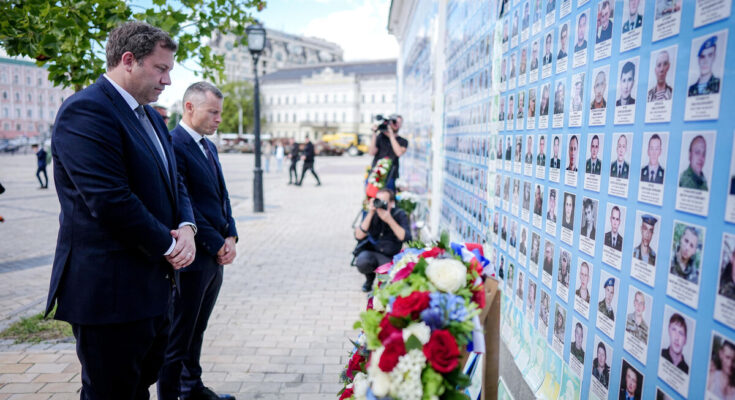Compensation that triggers feelings of envy. In Russia, the salaries and bonuses given to soldiers on the front lines in the conflict with Ukraine were much higher than the average Russian citizen could earn, in order to attract as many people as possible to the front lines.
In case of death on the front lines, the families of these soldiers also received compensation payments which some people may have found attractive. This happened to some Russian women, nicknamed “black widows”, who sought to quickly marry fighters to receive compensation if they died.
This is the case of Elena Sokolova, who married Sergei Khandojko in October 2023. The day after he enlisted in the Russian army, Elena and Sergei married with one witness, in about twenty minutes, without exchanging rings or taking photos. Additionally, Sergei’s family and friends were unaware of the wedding, according to the Wall Street Journal.
174,000 euros pocketed
When Sergei Khandojko died on the front line, he received about 174,000 euros, almost 20 times the average annual salary in Russia. Eventually justice intervened and the marriage was ultimately annulled because it was judged to be based on fraud. The young woman was later fined 3,000 rubles or 32 euros.
Last May, Lenta.ru media interviewed a section commander who admitted to seeing this phenomenon increasing since 2024. He gave the example of a woman who had been married three times and then became a widow. According to her, she chose her husband from the stormtroopers, whose life expectancy was far from the highest, RFI reports.
Our colleagues also cited the case of Angelina Varyukhina, a woman whose marriage was annulled by the court last August after her mother-in-law, the mother of the deceased, handed over to the court photos uploaded by her daughter-in-law on social networks. The latter made no secret of her trips to nightclubs and her boyfriend while her husband was at war.
“This is a business plan”
Last April, a court in Siberia sentenced a real estate agent to 80 hours of community service for advising women looking for a place to live to marry soldiers that they could receive large checks if they died. “It’s very simple. Find a guy who is on the front line, and when he dies, you get eight million. That’s the business plan,” Marina Orlova said in a podcast.
If this phenomenon is difficult to measure, it is important that Russian lawmakers pay attention to it and give the nickname “black widow” to the criminals they want to punish more severely. “These monsters have chosen to dishonor the most sacred thing that exists: the care given to the families of fallen heroes,” denounced lawmaker Leonid Sloutski this summer.
The “black widows” are not the only ones who want to profit from this amount. Parents estranged from their children return and demand a share of the loot, as do grandparents who believe they have raised their grandchildren.



